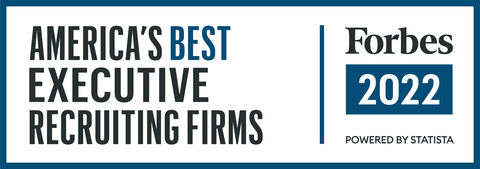Talent will get you in the door, but
character will keep you in the room.
Top CEOs Share How Customer Experience Starts With Culture
Robert Reiss Contributor
When Jeff Bezos started Amazon — originally called Cadabra — he announced, “Our goal is to be earth’s most customer-centric company.” Today Jeff Bezos calls it “customer obsession.”
As I explored why customer focus is the primary driver of many of the world’s most successful companies, I was thinking about conversations I had over the past year with CEOs who through customer-centric models are leading their industries. What I found is the key to a world-class customer experience really starts with your own culture. Below are direct quotes from 10 CEOs whose companies are leaders of service in their industry.

Wide angle interior of Harbour City mall,shopping destination Hong kongGetty
Melissa Reiff, CEO of The Container Store, and Robin Hayes, CEO of JetBlue, both pointed to the ageless principle that if you treat your employees well they are likely to treat their customers well. “We focus specifically on our employees, and we always want to treat them with respect and kindness,” said Reiff. “We create a culture of ‘it’s okay to make a mistake.’ Just pick yourself up by your bootstraps and try again. In this rapidly changing retail environment it helps our employees spread their wings.”
Hayes says that the service that JetBlue provides has to be warm and authentic. “Our customers must feel that we care about them. It’s very hard for our crew members to provide our customers that service if they don’t feel cared for themselves.”
At the Ritz-Carlton Hotel Company, cofounder, then long-time president and currently chairman emeritus reveals that treating the staff with exceptional dignity has been a key to their success. The associates are known around the company as “Ladies and Gentlemen.”
“The only way we can deliver this service culture is through the dedication of our ladies and gentlemen,” Humler says. “They are the most important asset in our service delivery to our guests. We trust in their work, empower them, and give them the tools and resources to succeed, and they rise to the occasion.”
He added, “We aren’t afraid of mistakes, partly because of the high trust environment we have with our ladies and gentlemen, and because of our strong focus on quality.” Humler further explains that mistakes can actually create the opportunity for exhibiting true service by showing how all problems can be solved.
Hiring
Hayes mentioned also the importance of hiring. “As we recruit people, it’s really important to probe for the right attitude …. We use a lot of our own frontline crew members to hire other crew members.”
David Nelms, the 14-year recently retired CEO of Discover Financial Services, agrees with that hiring belief. “A large number of our employees come from referrals from people that they know. Who can better sell our culture than someone who is part of our culture?”
The right thing
Another ageless principle of human relations — “doing the right thing” — is part of the culture expressed by Nelms and Amica Insurance’s CEO Bob DiMuccio that translates into great customer experience.
“We have a series of values that … we really live by,” said Nelms. “The very first one is doing the right thing…. Sometimes on paper something looks like it may cost the company some money, but if it’s the right thing to do for our customers we want to provide that service and not trick them into something.”
DiMuccio says doing the right thing stems from a key “Amica skill,” which is empathy for the client. He told me a story of a customer who suffered water damage from a hurricane and did not have flood coverage. “Three of our adjusters on the weekend … they had a day off, and went to his house and helped him with demolition, to sort through things and take the destroyed property out of the house…. There’s nothing in the manual telling them to do that. That came out of our culture, a sense of empathy that our folks have for their communities and our customers.”
The product
A connection between culture and improved business was made in the interview with Dunkin’ Brands long-time CEO and current Chairman Nigel Travis. For him, it starts with a culture where employees are willing to challenge their boss. “Challenge culture really means the ability to challenge everything and come up with better business solutions…. You should be willing to have challenges from below…. Even though it sounds obvious, it doesn’t always happen.”
James Parker, CEO of Masergy, a telecom leader with the industry’s highest Net Promoter Score, says the company’s customer-centric culture drives the innovations behind the solutions they deliver. “We have a customer-first approach in everything that we do,” he said. “It’s how Masergy empowers businesses to achieve their digital ambition—by delivering innovative solutions with an unparalleled customer experience.”
Another technology company’s CEO, Murray Rode of TIBCO, made a direct connection between product and culture. “It’s incredibly important that, as a technology company, our culture is fundamentally one of innovation. We encourage the open exchange of ideas, we encourage people to take risks — managed risks of course — but not be afraid to take risks, and not be afraid to step out of normal processes to innovate.”
Fun and steadfast
At Trilogy Financial, where CEO Jeff Motske says that the staff advisors who are most successful display perseverance, Motske chooses to foster a culture of fun and humility. “A phrase I often use as a personal tagline in company updates and other communications is Dream big. Work hard. Laugh often,” he told me. “These things combined are going to help us really grow the firm, because culture is important.”
When it comes to corporate culture and customer experience, Erik Anderson, Executive Chairman of Topgolf, offers some advice to other business leaders. “I would have defined our culture and purpose even sooner, as we take great pride in our values,” Anderson shared with me. “For entrepreneurs, define your purpose and culture early, and don’t waver from them. Use them as your guide in making all decisions large and small.”
In summary, as we look at these direct quotes shared with me it is clear the most successful companies of our time understand that the key to success is customer focus, and that all starts with your culture.
To listen to interviews with these CEOs go to The CEO Show



